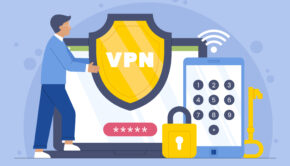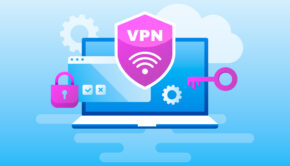What Should Businesses Know About IP Addresses?
An IP address has more meaning to a business than you might initially realize. If you’re an IT professional, you may understand this importance, but how do you convey that to stakeholders outside the IT department? Maybe you’re trying to explain the need for an IP address management solution to a non-technical audience and wondering where to even begin.
How do you start with the basics to help them gain an understanding of the relevance of an IP address to the business?
The following are some key things to explain when it comes to IP addresses.
The Basics—What Is An IP Address?
First and foremost, many people you work with may not even know the general elements of what an IP address is. If you’re a tech professional, break it down in simplest terms.
An IP address is a unique identifier for the machines that are part of your network. It can be compared to an address for a hard copy letter that’s sent via snail mail. For the most part, networks use the TCP/IP protocol as a way to know how communication occurs on the network. The term IP address stems from the TCP/IP protocol.
Within the larger category of IP addresses, there are dynamic and statistic addresses. Static addresses are self-configured when someone on the IT team edits network settings. These aren’t very commonly seen and what’s more common is a dynamic IP address, assigned by the Dynamic Host Configuration Protocol or DHCP. This is a service on the network that runs on hardware like routers, or maybe a dedicated server.
For any computer to go on or offline, the networking hardware or software has to know where it’s coming from. Thus the need for an IP address.
How Long Do You Have a Dynamic IP Address?
A dynamic IP address follows a leasing system, so a business only has it for a certain period of time. When it expires, a new lease is requested, and this may mean a new IP address.
What a lot of people who aren’t tech-familiar don’t realize is that an IP address doesn’t just change if it expires.
It can change in different situations as well—for example, even if a router goes on and off the IP address might change.
32-Bit Numbers
An IP address is what’s called a 32-bit binary number. You’ll see that many network administrators will memorize the important IP addresses.
What Can You Find Out From an IP Address?
With a huge focus currently on privacy and security issues, many businesses and individuals wonder what can be determined from an IP address and what happens if you go to an IP lookup page. A lot less can be determined from an IP address than most people might think.
For example, you can’t enter an IP address and suddenly find out the exact location of a business or private information. Even law enforcement isn’t able to find out much from an IP address unless they have a subpoena.
By looking up an IP address, no one is going to be able to find out things like specific names and addresses.
From a business perspective, there are some reasons to look up IP addresses, despite the limitations of these searches, however. For example, some retail businesses might lookup an IP address to make sure that the card a person is using to make a purchase isn’t linked to an overseas IP address when the card address is in the U.S.
A business might also look up IP addresses to determine if someone is emailing you from across the city like they say they are, or they’re instead somewhere around the world. Looking up IP addresses may also be a way to block spammers.
Private IP Address
Finally, does a business need a private IP address? Maybe. A private IP address is what’s used on a private network, and they’re invisible beyond being visible to one another. A private IP address can be static or dynamic, and they don’t do any communication with devices outside the network.
One of the primary reasons businesses opt for private IP addresses is to increase their security. No data can come into the network or leave it, so it works well for businesses with a lot of data. It’s also tougher for viruses to get into the system when it’s closed off to outside access.
There are disadvantages to consider as well. Private IP addresses and networks are more expensive than public networks, and of course, you wouldn’t be able to have outside access so it would require an additional open network.
















